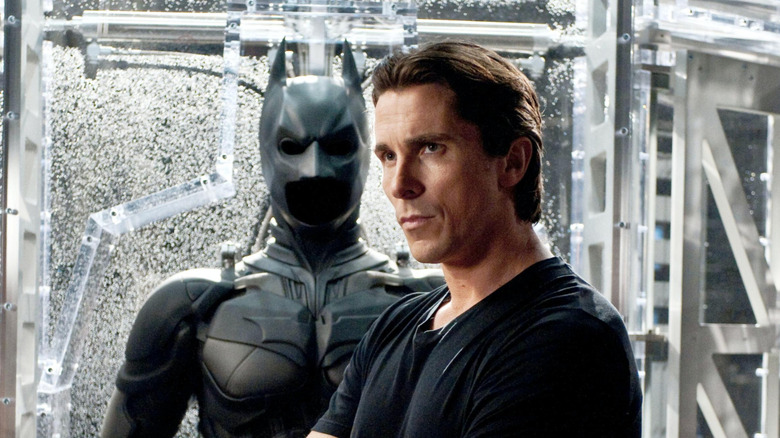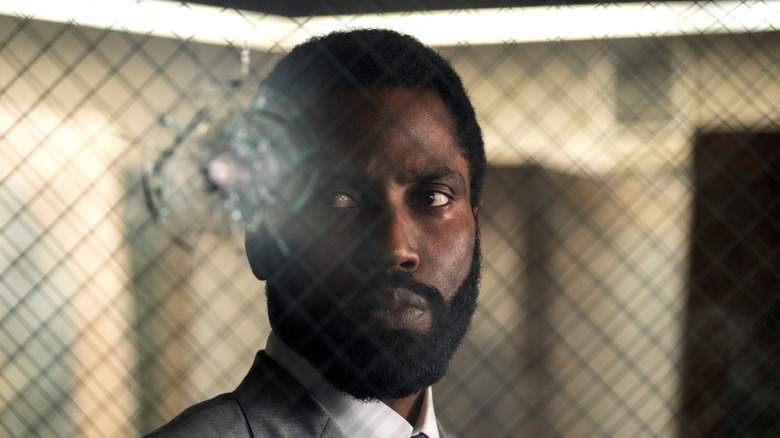The Reason Christopher Nolan Stopped Reading Reviews For His Movies
The relationship between filmmakers and critics has always been a strange one. While many directors do have friendly relationships with film critics who analyze their work, others have made headlines for being rather hostile and combative. It's a tenuous relationship, to be sure, and with social media now playing a role in establishing direct communication between these two parties, it has become even more tenuous.
For Christopher Nolan, that relationship is one that has been worsened because he argues criticism has changed for the worse. In a 2005 interview with Scott Holleran promoting the release of "Batman Begins," he explained that this is why he stopped reading reviews for his movies:
"To me, the value of film criticism, always was, and I say was because I used to be fascinated by anything written about films — the discussion of film, not the verdict, from a critic you knew, whose reviews you read a lot of."
There is a specific reason why Nolan, whose movies have either been critically praised or divisive, isn't a big fan of the then-current state of film criticism. He claims it to have been reduced to a numbers game, giving the industry some harsh words in the process.
"As soon as you start reducing things to numbers, it becomes less valuable — subject to all sorts of misinterpretations," he explained. "The test of films is ultimately the test of time."
All in the numbers?
In theory, the idea that modern-day film criticism is purely based on statistics and the amount of certain things present in a movie makes sense. Simply pointing out that something exists in the film isn't strong criticism. It's simply an observation, and without a formidable opinion as to why that observation does or doesn't work, it is not effective.
However, the part about misinterpretations and how Nolan claims they make movies less valuable is something that could be debated. Film criticism is an individual art form, where the critic is solely speaking from their point of view and how they personally viewed the film. No matter the film's intent, what matters in a film review is the opinion of its viewer. If they interpret the film as about one thing, it is reasonable to consider that a worthwhile interpretation. Of course, this line of thinking has its limitations, but the only opinion that matters in film criticism is ultimately your own. The great Roger Ebert said it best in a 2008 essay:
"One thing I try to do is provide an accurate account of what you will see, and how I feel about it. I cannot speak for you. Any worthwhile review is subjective. If we completely disagree, my words might nevertheless be useful or provocative."
Here's to hoping that someday, Nolan will decide to pick up a newspaper and read a review of "Oppenheimer" that changes his mind on the film criticism field.

